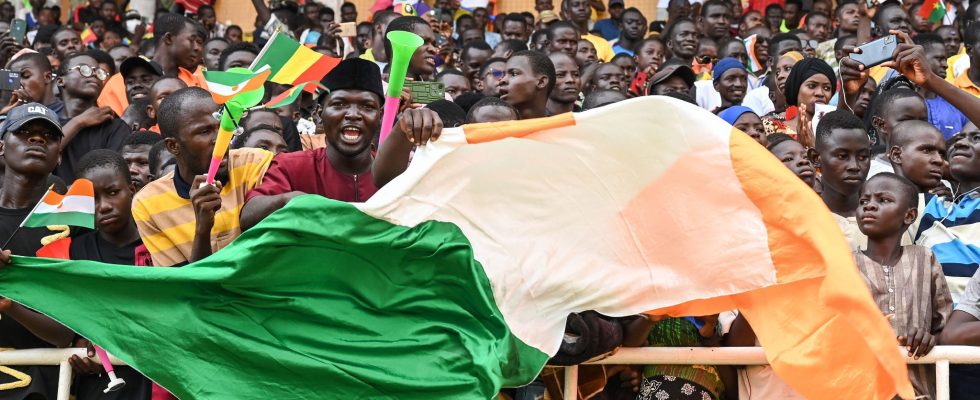The Nigerien Prime Minister, who came from the putschists, paid a first visit to Chad while several countries called on Tuesday August 16 for a peaceful resolution of the crisis in Niger, two days before a West African military meeting to discuss a possible armed intervention to restore the elected president Mohamed Bazoum, overthrown by a coup nearly three weeks ago. L’Express takes stock of the latest information.
A visit to Chad
The head of the government formed after the coup in Niger, Ali Mahaman Lamine Zeine, traveled to Chad on Tuesday, where he was received by the transitional president, Mahamat Idriss Deby Itno, the government announced. and the presidency. He arrived on a Nigerien military plane and was greeted at N’Djamena airport by his counterpart Saleh Kebzabo, before going to the presidency, according to a message and photos posted by the prime minister on Facebook.
“We have arrived bearing a message from the Head of State of Niger, General Tiani, who expresses his solidarity and his fraternity, and who asks me to renew this feeling of good neighborliness and good fraternity between Chad and Niger. “said Ali Mahaman Lamine Zeine, in a statement released by the Chadian presidency after his meeting with Mahamat Idriss Deby Itno.
“We are in a process of transition, we explained the ins and outs, and reiterated our availability to remain open and exchange with all parties, but insisted on the independence of our country”, he added. .
Chad, an important African military power, had indicated last week that it would not participate in any military intervention alongside the Economic Community of West African States (ECOWAS), to which it does not belong.
The United States prefers the diplomatic route
Several countries called on Tuesday for a peaceful resolution to the crisis in Niger, two days before a West African military meeting to discuss a possible armed intervention to restore President Mohamed Bazoum, overthrown by a coup nearly a while ago. of three weeks.
“We remain focused on the diplomatic channel to obtain […] the return to constitutional order, and I believe that there continues to be scope for achieving this result through diplomacy,” US Foreign Minister Antony Blinken told reporters.
A meeting between Putin and his Malian counterpart
Earlier in the day, Russian President Vladimir Putin and his Malian counterpart Assimi Goïta, who came to power by a putsch in 2020, underlined during a telephone conversation “the importance of resolving the situation” in Niger, “only by peaceful politico-diplomatic means”.
A meeting on August 17 and 18
A meeting of ECOWAS chiefs of staff, originally scheduled for August 12, will take place on August 17 and 18 in the Ghanaian capital, Accra, according to a regional military source and a source within the regional organization.
It will be held a week after ECOWAS decided to deploy a “standby force” to restore Mohamed Bazoum, the president of Niger, who was overthrown by a military coup on July 26.
A crisis with Abidjan
The military in power in Niger also raised their voices on Monday evening in the face of the threat of armed intervention. They recalled Niger’s ambassador to Abidjan for “consultation”, after remarks by Ivorian President Alassane Ouattara who, according to them, “apologized for armed action” against their country.
On Thursday, President Ouattara said that the heads of state agreed that a military operation “start as soon as possible”, pledging to provide a battalion. The military regime in Niamey denounced Mr. Ouattara’s “eagerness” to “see this completely illegal and senseless aggression against Niger take place”.
The road linking Benin to Niger blocked
On Tuesday, a container was placed across the road that connects Benin to Niger at Malanville, the only land border between the two countries, according to the testimony of several inhabitants on the Benin side.
According to these sources, this container – which completely blocks the passage – would have been placed on the Niger side to prevent a possible military intervention by this border.
